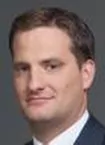For many people, Christmas is the most wonderful time of the year: decorating the house, wrapping presents and, last but not least, listening to cheesy Christmas songs, some of which are among the highest-earning songs of all time. When Santa Claus comes to town, however, he might bring some gift-wrapped intellectual property lawsuits with him. The European Patent Office, for example, records many patents that mention Christmas in their title. Most of these patents relate to Christmas trees or their decoration. But patents are not the only kind of intellectual property right that could cool your Christmas cheer.
Many Christmas songs such as "Jingle Bells" or "Silent Night" are not (or no longer) protected by copyright law and form part of the public domain. However, the danger of a copyright infringement lawsuit has not yet been abandoned. For example, even Instagramming your Christmas Eve dinner or live-streaming your church service on Persicope might be copyright sensitive. Because Christmas is ultimately about celebrating the birth of Jesus of Nazareth, it's worth noting that Jesus himself has been mentioned in copyright infringement lawsuits.
"Otherworldly Inspiration" Can Be Attributed to Its Human Recipient
In 1975, the late US psychologist Helen Schucman published a book called A Course in Miracles. She assigned the copyright to her book to the US Foundation for Inner Peace (FIP). Schucman believed that her book was dictated to her in a series of waking dreams by Jesus.
After the New Christian Endeavour Academy, a German registered association, published extracts from Schucman's book on their website's homepage, FIP asked for an injunction in the Regional Court of Frankfurt/Main. The New Christian Endeavour Academy defended itself by saying that there was no doubt that Jesus is the author of A Course in Miracles. A person who herself was of the opinion that her words were the result of a divine dictate could not have possibly obtained copyright in those words. By decision of 13 May 2014 (Case 11 U 62/13), the court of appeals, the Higher Regional Court of Frankfurt/Main, however, ruled that even "otherworldly inspiration" could be attributed to its human recipient. The authorship of a work was not determined by the mental state of its creator but by the actual process of creation. Thus, writers own copyright in their works even if they wrote them while mentally disturbed, in a trance or under metaphysical influences.
The case is currently pending before the German Federal Court of Justice under case number I ZR 138/14. It will be interesting to see how the case will be decided.
Happy Holidays from the AllAboutIP Team!
Originally published December 22, 2016
Mayer Brown is a global legal services provider comprising legal practices that are separate entities (the "Mayer Brown Practices"). The Mayer Brown Practices are: Mayer Brown LLP and Mayer Brown Europe – Brussels LLP, both limited liability partnerships established in Illinois USA; Mayer Brown International LLP, a limited liability partnership incorporated in England and Wales (authorized and regulated by the Solicitors Regulation Authority and registered in England and Wales number OC 303359); Mayer Brown, a SELAS established in France; Mayer Brown JSM, a Hong Kong partnership and its associated entities in Asia; and Tauil & Chequer Advogados, a Brazilian law partnership with which Mayer Brown is associated. "Mayer Brown" and the Mayer Brown logo are the trademarks of the Mayer Brown Practices in their respective jurisdictions.
© Copyright 2017. The Mayer Brown Practices. All rights reserved.
This Mayer Brown article provides information and comments on legal issues and developments of interest. The foregoing is not a comprehensive treatment of the subject matter covered and is not intended to provide legal advice. Readers should seek specific legal advice before taking any action with respect to the matters discussed herein.

